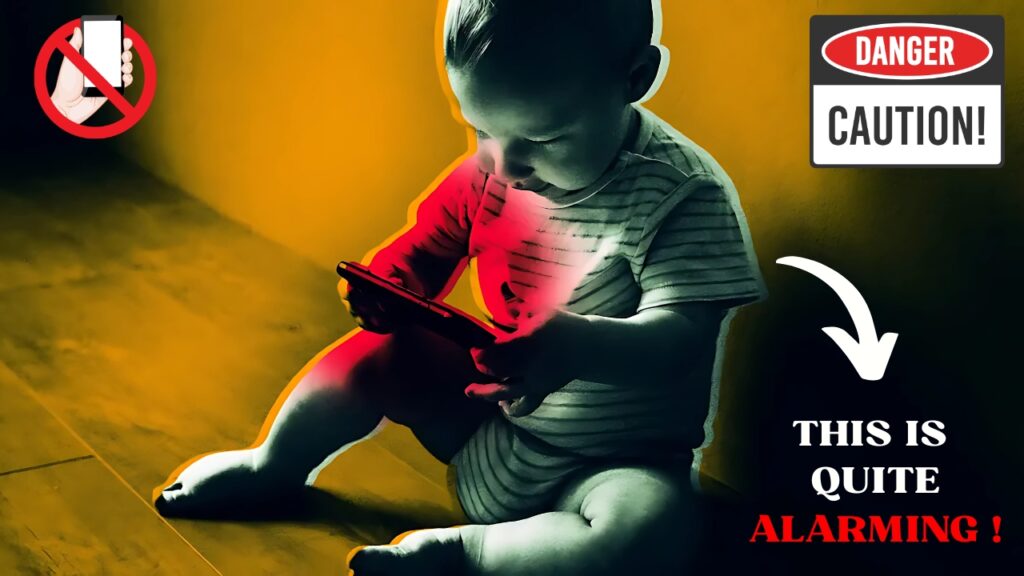
The Impact of Early Smartphone Access on Kids: What Every Parent Needs to Know Why Should Parents Delay Giving Smartphones to Children? Are you thinking about giving your child a smartphone before they turn 13? Recent research from Sapien Labs offers a convincing argument to rethink that decision. In a large study involving over 100,000 young adults, scientists found that early smartphone exposure—before age 13—can lead to severe mental health issues later in life, including aggression, suicidal thoughts, and hallucinations. New research reveals the dangers of giving kids smartphones before age 13, showing significant long-term mental health risks. Learn what parents can do.
This isn’t mere speculation. The study used longitudinal data from the Global Mind Project, following Generation Z participants as they matured. Those who got smartphones early were notably more prone to negative mental health outcomes than those who waited.

Key Findings From the Study
Mental Health Risks by the Numbers
Here’s what the research uncovered about early smartphone use:
| Age of First Smartphone | Reported Mental Health Issues |
|---|---|
| Under 13 | Increased suicidal ideation, aggression, hallucinations, lower self-image in girls, less empathy in boys |
| Above 13 | Significantly fewer of the above issues, greater resilience and emotional stability |
In the table above, you can see that waiting until after age 13 for a first smartphone makes a substantial difference.
What Are the Specific Risks?
For All Young Adults
Suicidal thoughts: Shows a marked increase in early smartphone users.
Aggression & detachment from reality: These users are more likely to become aggressive or feel detached.
Hallucinations: Some even experience perceptual disturbances.
For Girls
Lower self-image, confidence, and self-worth compared to girls who waited.
Emotional resilience suffers, making it tougher to handle life’s challenges.
For Boys
Decreased calmness and stability.
Reduced empathy, making it harder to relate to others.
Why Does This Happen?
Multiple Contributing Factors
The researchers point to several possible reasons:
Early access to social media
Increased risk of cyberbullying
Disrupted sleep cycles
Strained family relationships
Children exposed to these challenges earlier are simply not ready—neurologically or developmentally—for the emotional weight smartphones bring.
Advocacy and Policy Recommendations
A Global Call to Action
Study leader Dr. Tara Thiagarajan and her colleagues urge policymakers worldwide to take action:
Enforce age limits for smartphones (just like alcohol and tobacco)
Mandate digital literacy education for kids and parents
Hold tech companies more accountable to young users’ well-being
She stresses the need for a precautionary approach in regulating both access and online environments for under-13s.
What Can Parents Do Right Now?
Practical Advice
Wait until age 13 before giving your child a smartphone.
Encourage device-free play and social interactions.
Talk openly about online dangers and digital well-being.
Monitor sleep and screen habits closely.
Educate yourself on new tech trends and platforms your child may encounter.
Evidence That’s Too Strong to Ignore
Stories about children and screens are everywhere, but this research gives parents real, data-backed reasons to wait. Early smartphone ownership isn’t just a passing risk—it can alter a young person’s mental health trajectory for years to come.
It’s not just about restricting access; it’s about defending normal childhood development. As more technology enters our homes, waiting until age 13 for a smartphone may be one of the best decisions you can make for your child’s future mental health.
FAQs
Q1: At what age is it safer to give a child their first smartphone?
A: The study recommends waiting until after age 13.
Q2: What mental health issues are linked to early smartphone use?
A: Suicidal ideation, aggression, hallucinations, and lower self-worth, among others.
Q3: What policy changes are being recommended?
A: Age restrictions, digital literacy education, and greater corporate responsibility.
2025 VA Disability Pay: $4,644.27 + $347.97 Added – See If You Qualify & Payment Dates